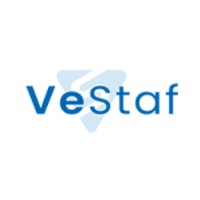

GenAI Engineer (LLM Engineer)
⭐ - Featured Role | Apply direct with Data Freelance Hub
This role is for a GenAI Engineer (LLM Engineer) with a contract length of over 1 year, offering a remote position for candidates local to the Bay Area. Key skills include deep learning, NLP, and expertise in LLM optimization techniques.
🌎 - Country
United States
💱 - Currency
$ USD
-
💰 - Day rate
-
🗓️ - Date discovered
August 15, 2025
🕒 - Project duration
More than 6 months
-
🏝️ - Location type
Remote
-
📄 - Contract type
Unknown
-
🔒 - Security clearance
Unknown
-
📍 - Location detailed
San Francisco Bay Area
-
🧠 - Skills detailed
#Hugging Face #AI (Artificial Intelligence) #Mathematics #Documentation #Databases #Compliance #Data Science #Deep Learning #TensorFlow #"ETL (Extract #Transform #Load)" #PyTorch #NLP (Natural Language Processing) #Monitoring #Data Pipeline #Libraries #Transformers
Role description
We are looking for GenAI/LLM Engineer
Remote(Local to bay area)
1 Year+
Implementing GenAI requires specialized expertise in large language models. Traditional data scientists often haven't had the opportunity to dive deep into the practical intricacies of LLMs—particularly advanced fine-tuning techniques, model compression strategies, memory optimization approaches, and specialized training workflows. This role requires a hands-on deep learning practitioner comfortable with modern frameworks and libraries specific to LLM development.
• Enables domain-specific fine-tuning of models to unique utility context
• Improves model performance while reducing computational costs through advanced optimization techniques
• Creates specific AI capabilities that address our unique operational challenges
• Enables the CoE to move beyond generic AI tools to customized solutions that deliver higher business value
Key Responsibilities:
• Implement and optimize advanced fine-tuning approaches (LoRA, PEFT, QLoRA) to adapt foundation models
• Develop systematic prompt engineering methodologies specific to utility operations, regulatory compliance, and technical documentation
• Create reusable prompt templates and libraries to standardize interactions across multiple LLM applications and use cases
• Implement prompt testing frameworks to quantitatively evaluate and iteratively improve prompt effectiveness
• Establish prompt versioning systems and governance to maintain consistency and quality across applications
• Apply model customization techniques like knowledge distillation, quantization, and pruning to reduce memory footprint and inference costs
• Tackle memory constraints using techniques such as sharded data parallelism, GPU offloading, or CPU+GPU hybrid approaches
• Build robust retrieval-augmented generation (RAG) pipelines with vector databases, embedding pipelines, and optimized chunking strategies
• Design advanced prompting strategies including chain-of-thought reasoning, conversation orchestration, and agent-based approaches
• Collaborate with the MLOps engineer to ensure models are efficiently deployed, monitored, and retrained as needed
Expected Skillset:
• Deep Learning & NLP: Proficiency with PyTorch/TensorFlow, Hugging Face Transformers, DSPy, and advanced LLM training techniques
• GPU/Hardware Knowledge: Experience with multi-GPU training, memory optimization, and parallelization strategies
• LLMOps: Familiarity with workflows for maintaining LLM-based applications in production and monitoring model performance
• Technical Adaptability: Ability to interpret research papers and implement emerging techniques (without necessarily requiring PhD-level mathematics)
• Domain Adaptation: Skills in creating data pipelines for fine-tuning models with utility-specific content
We are looking for GenAI/LLM Engineer
Remote(Local to bay area)
1 Year+
Implementing GenAI requires specialized expertise in large language models. Traditional data scientists often haven't had the opportunity to dive deep into the practical intricacies of LLMs—particularly advanced fine-tuning techniques, model compression strategies, memory optimization approaches, and specialized training workflows. This role requires a hands-on deep learning practitioner comfortable with modern frameworks and libraries specific to LLM development.
• Enables domain-specific fine-tuning of models to unique utility context
• Improves model performance while reducing computational costs through advanced optimization techniques
• Creates specific AI capabilities that address our unique operational challenges
• Enables the CoE to move beyond generic AI tools to customized solutions that deliver higher business value
Key Responsibilities:
• Implement and optimize advanced fine-tuning approaches (LoRA, PEFT, QLoRA) to adapt foundation models
• Develop systematic prompt engineering methodologies specific to utility operations, regulatory compliance, and technical documentation
• Create reusable prompt templates and libraries to standardize interactions across multiple LLM applications and use cases
• Implement prompt testing frameworks to quantitatively evaluate and iteratively improve prompt effectiveness
• Establish prompt versioning systems and governance to maintain consistency and quality across applications
• Apply model customization techniques like knowledge distillation, quantization, and pruning to reduce memory footprint and inference costs
• Tackle memory constraints using techniques such as sharded data parallelism, GPU offloading, or CPU+GPU hybrid approaches
• Build robust retrieval-augmented generation (RAG) pipelines with vector databases, embedding pipelines, and optimized chunking strategies
• Design advanced prompting strategies including chain-of-thought reasoning, conversation orchestration, and agent-based approaches
• Collaborate with the MLOps engineer to ensure models are efficiently deployed, monitored, and retrained as needed
Expected Skillset:
• Deep Learning & NLP: Proficiency with PyTorch/TensorFlow, Hugging Face Transformers, DSPy, and advanced LLM training techniques
• GPU/Hardware Knowledge: Experience with multi-GPU training, memory optimization, and parallelization strategies
• LLMOps: Familiarity with workflows for maintaining LLM-based applications in production and monitoring model performance
• Technical Adaptability: Ability to interpret research papers and implement emerging techniques (without necessarily requiring PhD-level mathematics)
• Domain Adaptation: Skills in creating data pipelines for fine-tuning models with utility-specific content



